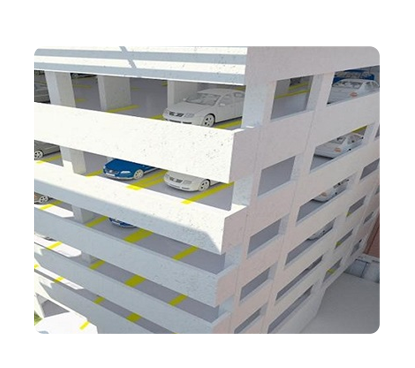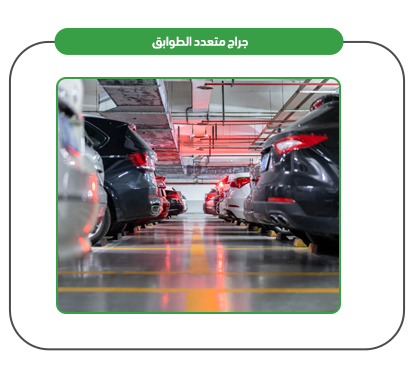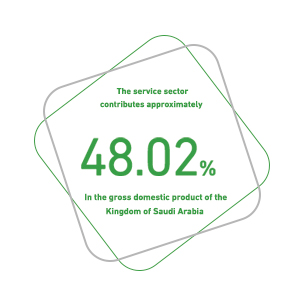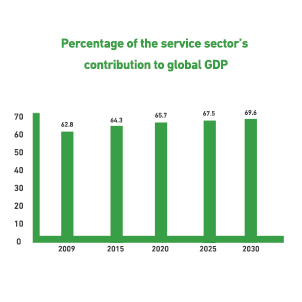Mashroo3k Economic Consulting Company offers a feasibility study for a multi-story garage project in Yemen. This study aims to achieve the highest return on investment and the best payback period. This study is based on a series of in-depth studies of the Yemeni market size, an analysis of competitors’ strategies, and the provision of competitive advantages.

The multi-story garage project is a vital project in Yemen, which is facing the crisis of increasing car and motorcycle traffic, as the country’s population has risen to 40 million. According to the General Traffic Directorate, the number of vehicles in the capital, Baghdad, reached 2.5 million vehicles after 2003.
Mashroo3k for Economic Consulting provides investors interested in investing in a multi-story garage project in Yemen with a set of specialized feasibility studies based on updated databases specific to the Yemeni market. This helps ensure the project’s success, achieves the highest return on investment, and provides the best payback period. This is achieved by analyzing the strategies of local and foreign competitors and offering competitive pricing.

Mashroo3k Economic Consulting recommends that a successful multi-story garage project should feature a modern, all-steel parking system that is easy to disassemble and install, a flexible subscription system, and hourly rentals. Mashroo3k consultants also offer a variety of innovative ideas to enhance the garage’s competitive advantages and achieve the highest return on investment.
Mashroo3k Economic Consulting advises investors interested in investing in a multi-story garage project, or developing existing projects, to seek the advice of specialized consultants through Mashroo3k , to help them determine the best ways and methods to develop garage services to meet customer needs.


Car care and maintenance
High cleanliness inside the garage
Quality design inside the garage
High-quality and efficient work team
Quality in the selection of steel used in the garage
Using scientific methods in project management
Using modern and advanced technologies in operation
Executive summary
Study project services/products
Market Size Analysis
Risk Assessment
Technical study
Financial study
Organizational and administrative study

According to the macroeconomic theory of sectors, the economy is divided into three main sectors:
The Primary Sector – which is based on collecting raw materials and includes industries such as mining, forestry, oil exploration, agriculture, and fishing.
The Secondary Sector – which involves goods production and trade, such as automobile manufacturing, furniture, and clothing trade.
The Tertiary Sector (Service Sector) – which is responsible for providing and producing services, focusing on intangible offerings such as entertainment, healthcare, transportation, hospitality, and restaurants.
This theory suggests that as countries become more developed, their economies become more reliant on the service sector, whereas underdeveloped nations rely primarily on the primary sector. For instance, in the United States, the service sector accounts for 85% of the total economy.
The service sector is vast, encompassing wholesale and retail trade, restaurants and hotels, transportation, storage, information and communications, financial and insurance services, real estate and business services, social and personal services, and government services. Key indicators of the sector in Saudi Arabia include:
The service sector contributes approximately 48.2% to Saudi Arabia’s GDP.
The wholesale, retail, restaurant, and hotel sector contributes 10.8% to GDP.
The transportation, storage, information, and communications sector contributes 6.6% to GDP.
The financial, insurance, real estate, and business services sector contributes 6.4% to GDP.
The social, collective, and personal services sector contributes 2.5% to GDP.
The government services sector contributes 21.9% to GDP.
In the last year alone, Saudi Arabia issued 100,944 new business licenses, bringing the total number of issued business licenses to 348,173. The wholesale and retail trade sector, along with vehicle repair, dominated new licenses with 48,242 issued, followed by accommodation and food services with 16,531 licenses, and construction with 11,521 licenses.
The wholesale and retail trade sector in Qatar is valued at 50,083 million Qatari riyals.
There are 11,139 establishments operating in wholesale and retail trade, employing 213,954 workers.
Employee compensation in the wholesale and retail sector amounts to 11,288,877 thousand Qatari riyals.
The hospitality and restaurant sector consists of 2,396 establishments employing 78,194 workers.
Employee compensation in the hospitality and restaurant sector is 2,947,431 thousand Qatari riyals.
There are 976,015 mobile phone subscribers in Qatar with standard subscriptions and 2,941,556 prepaid mobile subscribers.
2,224 kilometers of roads were paved in the past year.
242,923 driving licenses were issued last year.
Compensation for employees in the transport and communications sector reached 24,338,223 thousand Qatari riyals.
715,897 insurance policies were issued in the past year.
The business services sector comprises 4,973 establishments, employing 215,285 workers, with employee compensation totaling 15,347,819 thousand Qatari riyals.
The private social and personal services sector employs 80,569 workers, with employee compensation reaching 6,127,645 thousand Qatari riyals.
The wholesale and retail trade sector contributes 1,644.3 million Kuwaiti dinars to the national GDP.
The hospitality and restaurant sector contributes 418.6 million Kuwaiti dinars to GDP.
The transport, storage, and communications sector contributes 2,554.5 million Kuwaiti dinars to GDP.
91,340,068 square meters of roads have been paved in Kuwait.
The wholesale and retail trade, vehicle repair, and motorcycle repair sector contributes 12.3% to GDP (172,288 million dirhams).
The transportation and storage sector contributes 5.9% to GDP (82,461 million dirhams).
The accommodation and food services sector contributes 2.3% to GDP (32,357 million dirhams).
The information and communications sector contributes 2.9% to GDP (41,347 million dirhams).
Financial services and insurance contribute 9.6% to GDP (134,773 million dirhams).
7,584,607 insurance policies were issued last year.
The wholesale and retail trade sector accounts for 13% of the total workforce in the UAE.
The transportation and storage sector employs 6.2% of the total workforce.
The hospitality and food services sector employs 5% of the total workforce.
Oman’s total GDP is 29.3 billion Omani riyals.
The wholesale and retail trade sector contributes 7% to GDP (2,064.7 million Omani riyals).
The hospitality and restaurant sector contributes 1.1% to GDP (308.6 million Omani riyals).
The transport, storage, and communications sector contributes 5.9% to GDP (1,721.2 million Omani riyals).
The service sector is the largest contributor to global GDP, accounting for more than three-fifths of total global output. Unlike the manufacturing sector, which produces tangible goods like automobiles and furniture, the service sector provides intangible offerings such as banking, healthcare, transportation, and entertainment.
The global service market was valued at $10,814.49 billion in 2020.
By 2021, the market had increased to $11,780.11 billion, achieving an annual compound growth rate (CAGR) of 8.9%.
Following the recovery from the COVID-19 pandemic, experts predict that the global service market will reach $15,683.84 billion by 2025, achieving a CAGR of 7% in the coming years.
